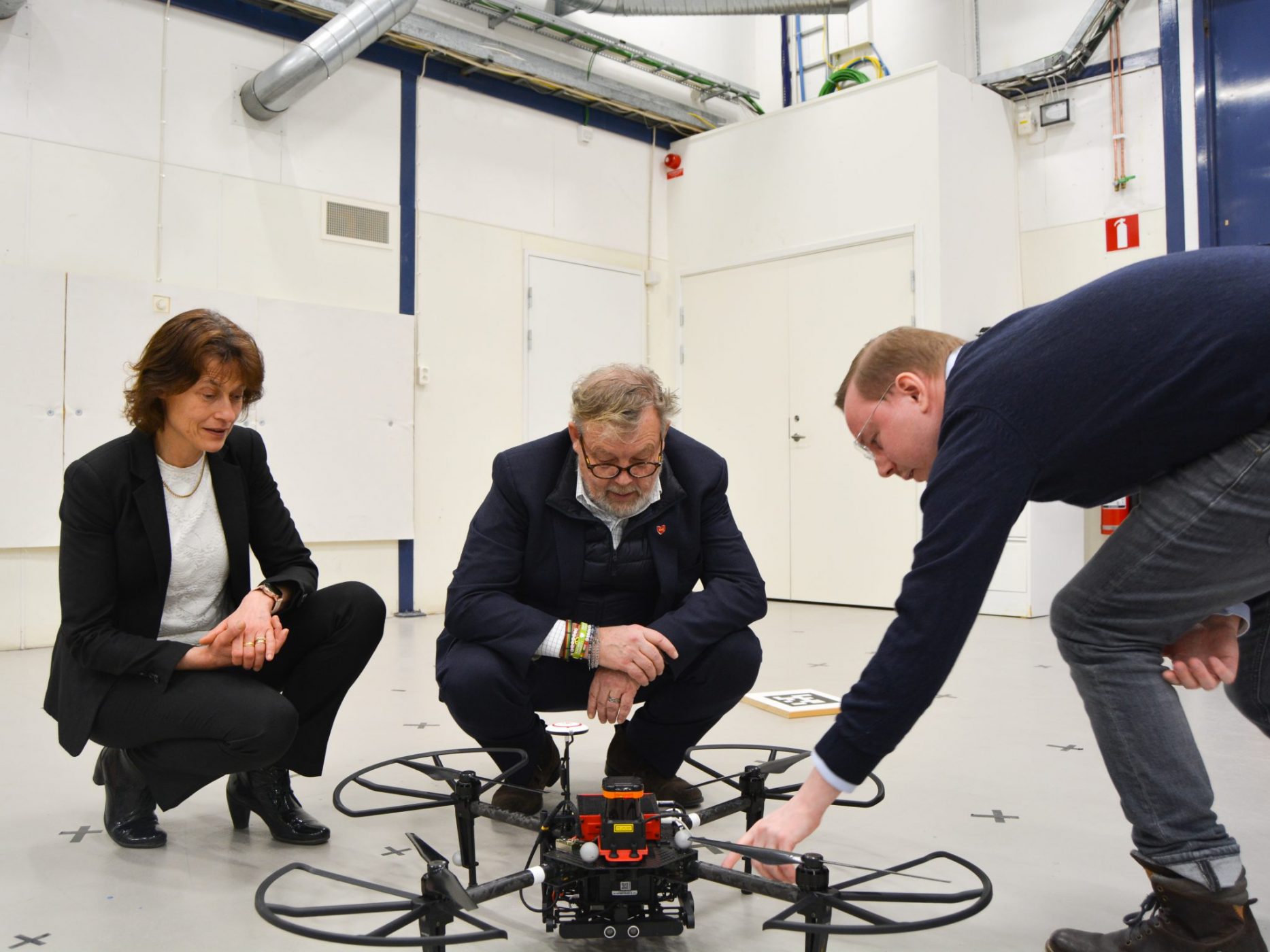After some years of working in industry, the interest to solve fundamental questions within autonomous systems grew and Olov Andersson decided to return to the academic world. Now he has just finished his Doctoral degree in the WASP program and has his goal set – to start his own autonomous systems research group.
Drone-flying in reality requires safe algorithms
Olov’s research interest lies in how robots are dealing with uncertainty, a problem often neglected in applications. He has investigated three different methods drawing on artificial intelligence, machine learning and automatic control to explore how drones’ decision-making under uncertainty can be improved.
“Drones are interesting research objects, partly because of their physical limitations. For example, they have to carry all equipment like sensors, compute components and batteries while we want them to execute quite complicated and compute-heavy real-time calculations. These challenges combined with the potential risk that they might injure people when flying makes them very interesting to study.”
For his research the WASP Research Arena for Public Safety has been very valuable.
“Demonstrating your research live before an audience demands more of you than when just experimenting in the lab. It requires robustness in your algorithms and forces you to confront real-world problems that can end up neglected in laboratory experiments. Even though participating in a research arena does take some extra time it gives you so much back in terms of new research questions, real world experience and interesting discussions with the audience. “
A Swedish network gained by going abroad
Another value he has gained through taking part in the WASP Graduate School is the possibilities for networking. And maybe a bit paradox but according to Olov, growing his network in Sweden has happened a lot thanks to the international study trips.
“The study trip to USA was fantastic. The range of visits was very interesting, from startups and bigger companies to international top tier universities. What we saw and the people we met there gave many new thoughts and perspectives. One of the biggest take-aways though has been the network I gained from being abroad for a week together with the group of other WASP PhD students from all universities and different disciplines.”
Taking the next academic step in Zürich
With his doctoral degree in hand Olov’s next step is a postdoc period at ETH Zürich. He has been granted a WASP Postdoc scholarship and has been admitted to Roland Siegwart’s well renowned autonomous systems lab.
“They have done a lot of research on topics similar to mine, especially on robotic planning in complex environments and with quadcopters. They are far ahead in research about how robots can interpret their surroundings. There are some very interesting problems there that I stumbled upon during my work in the WASP research arena and would like to investigate further. It’s an important key to safely control the robots’ behavior when interacting with humans.”
“I really look forward to it and it feels very exciting. It is a big chance for me to learn from one of the best labs in the world. My ambition is to find good collaborations and contribute to each other’s expertise in this field.”
Olov has not regretted that he left the private sector for academia and it is a path that he wishes to continue on.
“There are some fundamental problems that still remain to be solved for autonomous systems, which requires a longer-term perspective. For this, academia is a key player even though collaborations with industry is also important. In the future I hope to start my own autonomous systems research group, to be able to pursue more of my ideas and to help future PhD students. There are so many exciting problems to be solved in this area.”
Doctoral Thesis
Learning to make safe real-time decisions under uncertainty for autonomous robots, Olov Andersson, Department of Computer and Information Science, Linköping University 2020 Supervisor: Professor Patrick Doherty.
Olov Andersson successfully defended his thesis on 29 April 2020.
Want to read more about Olov’s research?
Published: May 20th, 2020
[addtoany]


